Related Research Articles
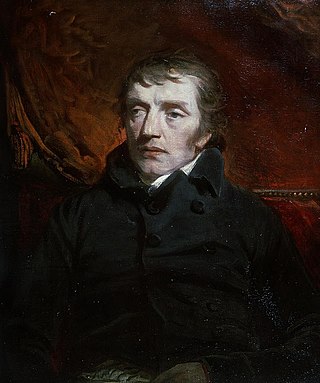
William Gifford was an English critic, editor and poet, famous as a satirist and controversialist.
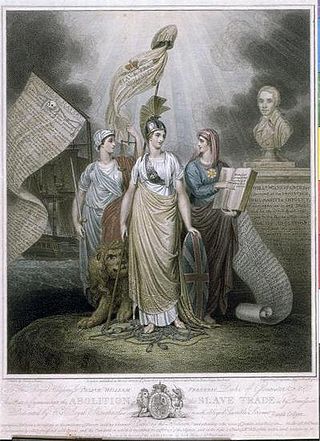
Joseph Collyer, also called Joseph Collyer the Younger, was a British engraver. He was an associate of the Royal Academy and portrait engraver to the British Queen Consort, Queen Charlotte.

The Della Cruscans were a circle of European late-18th-century sentimental poets founded by Robert Merry (1755–98).
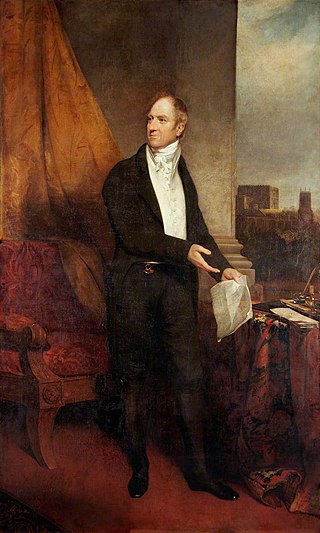
William Smith was a leading independent British politician, sitting as Member of Parliament (MP) for more than one constituency. He was an English Dissenter and was instrumental in bringing political rights to that religious minority. He was a friend and close associate of William Wilberforce and a member of the Clapham Sect of social reformers, and was in the forefront of many of their campaigns for social justice, prison reform and philanthropic endeavour, most notably the abolition of slavery. He was the grandfather of pioneer nurse and statistician Florence Nightingale and educationalist Barbara Bodichon, a founder of Girton College, Cambridge.
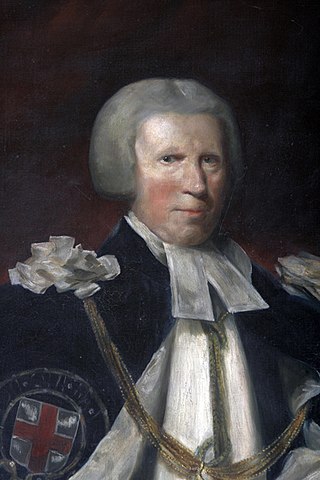
Sir George Pretyman Tomline, 5th Baronet was an English clergyman, theologian, Bishop of Lincoln and then Bishop of Winchester, and confidant of William Pitt the Younger. He was an opponent of Catholic emancipation.
Thomas Parkinson was a British portrait-painter. He became a student in the schools of the Royal Academy in 1772.
Philip Francis Stephanoff, sometimes Francis Philip Stephanoff (1787/88–1860) was an English painter.
Thomas Starling Norgate was an English writer, journalist and newspaper editor.

Caleb Hillier Parry was an Anglo-Welsh physician credited with the first report of Parry–Romberg syndrome, published in 1815, and one of the earliest descriptions of the exophthalmic goiter, published in 1825.
John Potter was an English dramatic and miscellaneous writer, and composer. He was also involved in espionage, and was a physician. The Oxford Dictionary of National Biography warns that details of his life are still unclear, and that there is possible confusion with at least one other of the same name.
Frederick Pilon (1750–1788) was an Irish actor and dramatist.
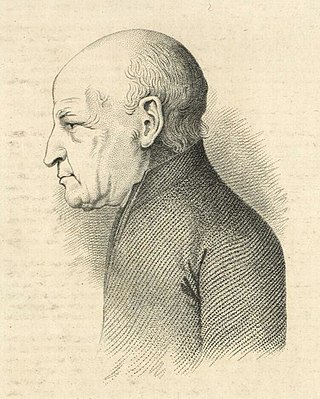
Charles Lloyd was an English banker, philanthropist, Quaker preacher and abolitionist.
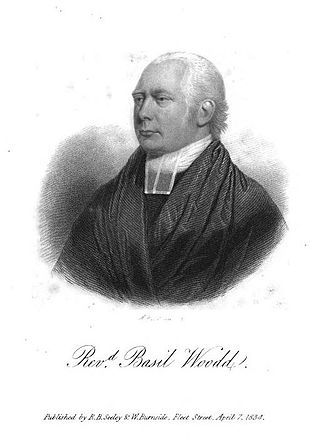
Basil Woodd (1760–1831) was an English evangelical cleric, known as a hymn-writer.
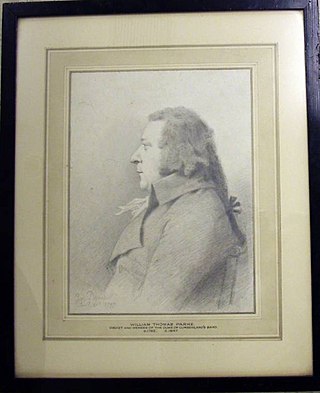
William Thomas Parke was an English oboist and composer. He played in notable concerts of the day; in retirement he published Musical Memoirs.
Henry William Tytler M.D. (c.1752–1808) was a Scottish physician and translator.
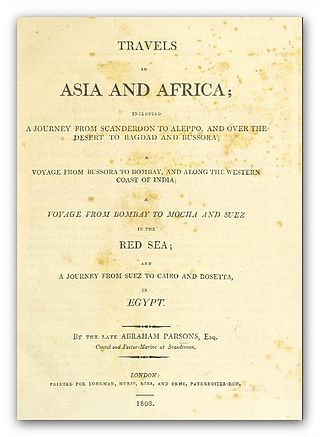
Abraham Parsons was an English commercial consul and traveller. His account of his travels in the Middle East were published in 1808.
John Sleath (1767–1847) was an English cleric and High Master of St Paul's School, London. He was elected a Fellow of the Royal Society in 1820.

Edward Parsons (1762–1833) was an English Congregational minister and writer.
References
- ↑ Royal Society record, Parsons; William (- 1828).
- 1 2 3 Lee, Sidney, ed. (1895). . Dictionary of National Biography . Vol. 43. London: Smith, Elder & Co.
- ↑ Russell, Corinna. "Parsons, William". Oxford Dictionary of National Biography (online ed.). Oxford University Press. doi:10.1093/ref:odnb/21479.(Subscription or UK public library membership required.)
- Attribution
![]() This article incorporates text from a publication now in the public domain : Lee, Sidney, ed. (1895). "Parsons, William (fl.1785-1807)". Dictionary of National Biography . Vol. 43. London: Smith, Elder & Co.
This article incorporates text from a publication now in the public domain : Lee, Sidney, ed. (1895). "Parsons, William (fl.1785-1807)". Dictionary of National Biography . Vol. 43. London: Smith, Elder & Co.